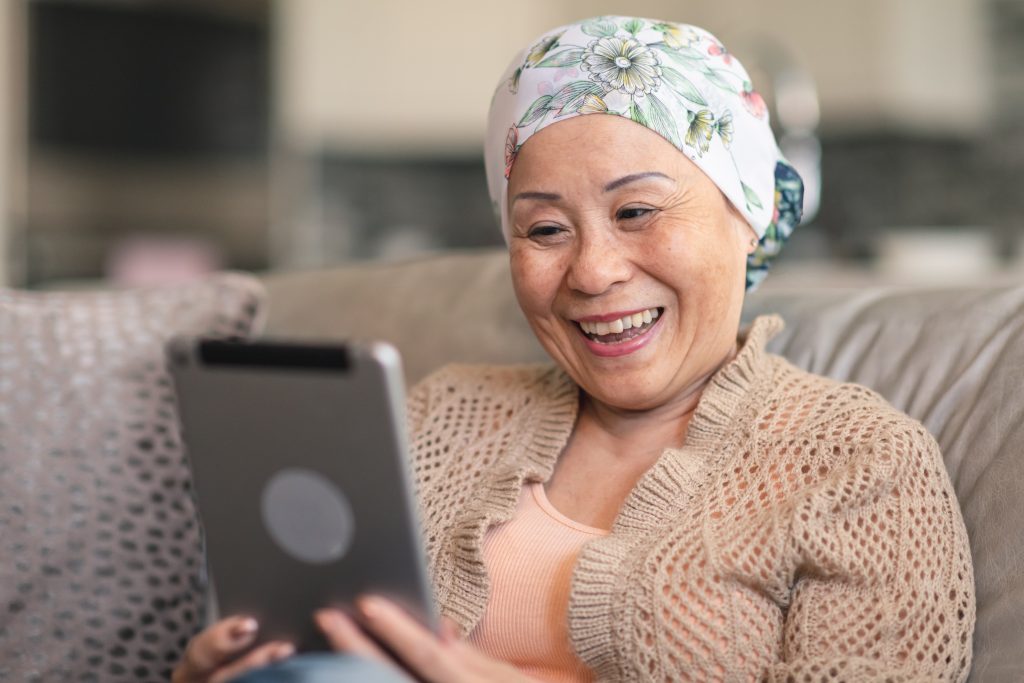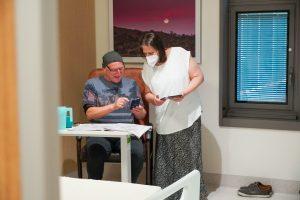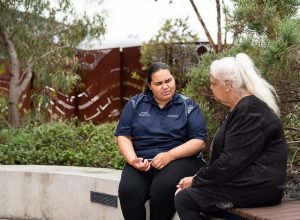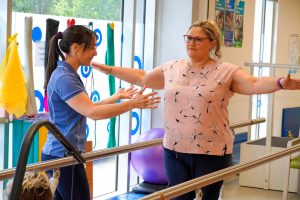To complement its cancer service, Central Adelaide is recruiting 90 people undergoing cancer treatment to trial a support and wellbeing program as part of a pilot developed by Osara Health.
Through the Cancer Coach Program, patients diagnosed with cancer will have access to a dedicated health coach, digital resources and a smart phone app, which they can use to track symptoms.
Another tool in the toolbox
Natasha, CALHN Clinical Services Operations Manager for Outpatients within Cancer Services said initiatives like the Cancer Coach program aim to provide support and guidance to patients early on in their cancer journey, so they are equipped to deal better with the challenges they face.
“This in turn will mean there is less reliance on our acute services in the hospital like the emergency department and our mental health program.”
Tash said the Cancer program wants to provide patients with more ‘tools in their toolbox’.
“The better informed our patients are the better outcomes they have. The journey for these patients can be isolating at times and overwhelming. The coach program provides them with a support person that is removed from their inner circle. This means they can speak to an objective person and be open about their worries and questions without fear of causing stress to a family member or loved one.”
Providing accessible and relevant support
The Cancer Coach Program has been designed by oncologists and with feedback from consumers to help improve health outcomes through setting health goals and better understanding their treatment.
The program covers practical topics like symptom tracking, exercise and mental wellness for patient’s going through cancer treatment.
“We have received incredibly positive feedback from the patients that have engaged in the program to date. It is particularly useful for our rural patients who may struggle to get access to regular services in their area.”
Benefits of the Cancer Coach Program
People facing cancer can access a Health Coach as part of the program – a trained professional that has experience providing care to patients with cancer.
The coach can support patients virtually to help them understand more about their diagnosis and steps they can make to take control over their health outcomes and improve recovery.
They do not provide medical advice but aim to complement a patient’s medical team by helping to guide them through treatment and assist them in reaching their health goals.
Coaches will focus on exercise, sleep, diet and mindfulness, as well as helping a patient have a more informed conversation with their treating team.
“This is one of our many initiatives we are providing to our patients that treats the patient as a whole. We are not just solely focussed on their primary diagnosis and treatment. Holistic care is particularly important in our setting and ensuring people with cancer have a variety of support services at their fingertips that they can choose from.”
Additionally, participants will receive weekly digital resource modules covering these topics to read through in their own time and put into action. Other digital tools on offer include the smartphone app, allowing participants to track symptoms and side effects and read through verified resources.
A helping hand during treatment
Cancer Coach participant Linh says the program helps with emotional wellbeing and in getting access to further support as needed.
She found the modules in the coaching plan useful, “…you can learn from the side effects and how other people cope and how other people dealing with their stress and their diagnosis and how they’re dealing with their family.”
Another participant, Aamu liked using the journal app and symptom tracking functions in the app, and found the relationship with her coach beneficial.
“When I started with Osara Health, I got along really well with my health coach. She was really supportive and that really helped the process. …I felt very supported and cared about in a time when my whole world was coming down again,” she said.
Hear more from Linh and Aamu in this video.
Patients can speak to their clinician for more information about the Program, or learn more here.



